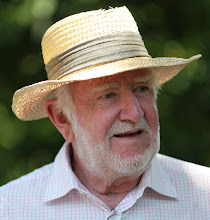The Global Warming Policy Foundation (GWPF) has called on the Royal Society to be more open-minded and balanced in its assessment of climate science. Lord Robert May, who is a distinguished British population biologist, told a journalist: “I am the president of the Royal Society, and I am telling you the debate on climate change is over.” The reputation of the venerable institution he headed slipped badly.
The debate is far from over. The most basic of measurements, that of the average surface temperature of our globe, is by no means on a solid foundation. From New Zealand comes clear evidence that their historical records were 'fixed' to show a warming that never occurred. From Australia comes the case of Darwin's raw data that showed a clear cooling trend over 50 years being 'adjusted' to show a strong warming trend. From Russia comes a complaint that their advice on which temperature records were reliable and which were suspect was ignored . The reliable records showed a slight cooling, and the suspect records showed a definite warming. From the US we learn that many stations are sited with no care about siting rules, so in the worst cases a temperature station has suddenly found itself measuring the exhaust of a newly installed air conditioner. And from Britain, not only has much of the historical data gone missing, but the algorithms used to massage the data have changed so often that no-one knows how to recreate the raw data. There is an ongoing debate about the magnitude of the urban heat island effect, with the True Believers talking of a few hundredths of a degree centigrade, and every observant traveller seeing black urban masses in an otherwise white winter landscape. There is also debate about sea surface temperature measurements, which were historically taken via a bucket of water hauled aboard. The measured temperatures have been corrected via the assumption that the water would have warmed during the process so that the ancient seas were actually cooler than measured.
So if the extent of warming is full of questions (and I'm not saying it hasn't warmed, merely that there are questions about the extent of warming) then, as a scientist, I can see no way not to doubt much that flows from the human-induced climate change theory. I'm not a Royal Society member, but if I were I would be very miffed at my President making such a stupid remark.
The trouble is that we need the best of scientific advice on a whole range of problems. If organisations like the Royal Society fall into the trap of being politically correct, then science is damned and we will really lose our way. And there are others - the US National Academy of Sciences, the Science Council of Japan, the Académie des Sciences in France. All should hang their heads in shame.
The debate is far from over. The most basic of measurements, that of the average surface temperature of our globe, is by no means on a solid foundation. From New Zealand comes clear evidence that their historical records were 'fixed' to show a warming that never occurred. From Australia comes the case of Darwin's raw data that showed a clear cooling trend over 50 years being 'adjusted' to show a strong warming trend. From Russia comes a complaint that their advice on which temperature records were reliable and which were suspect was ignored . The reliable records showed a slight cooling, and the suspect records showed a definite warming. From the US we learn that many stations are sited with no care about siting rules, so in the worst cases a temperature station has suddenly found itself measuring the exhaust of a newly installed air conditioner. And from Britain, not only has much of the historical data gone missing, but the algorithms used to massage the data have changed so often that no-one knows how to recreate the raw data. There is an ongoing debate about the magnitude of the urban heat island effect, with the True Believers talking of a few hundredths of a degree centigrade, and every observant traveller seeing black urban masses in an otherwise white winter landscape. There is also debate about sea surface temperature measurements, which were historically taken via a bucket of water hauled aboard. The measured temperatures have been corrected via the assumption that the water would have warmed during the process so that the ancient seas were actually cooler than measured.
So if the extent of warming is full of questions (and I'm not saying it hasn't warmed, merely that there are questions about the extent of warming) then, as a scientist, I can see no way not to doubt much that flows from the human-induced climate change theory. I'm not a Royal Society member, but if I were I would be very miffed at my President making such a stupid remark.
The trouble is that we need the best of scientific advice on a whole range of problems. If organisations like the Royal Society fall into the trap of being politically correct, then science is damned and we will really lose our way. And there are others - the US National Academy of Sciences, the Science Council of Japan, the Académie des Sciences in France. All should hang their heads in shame.


No comments:
Post a Comment